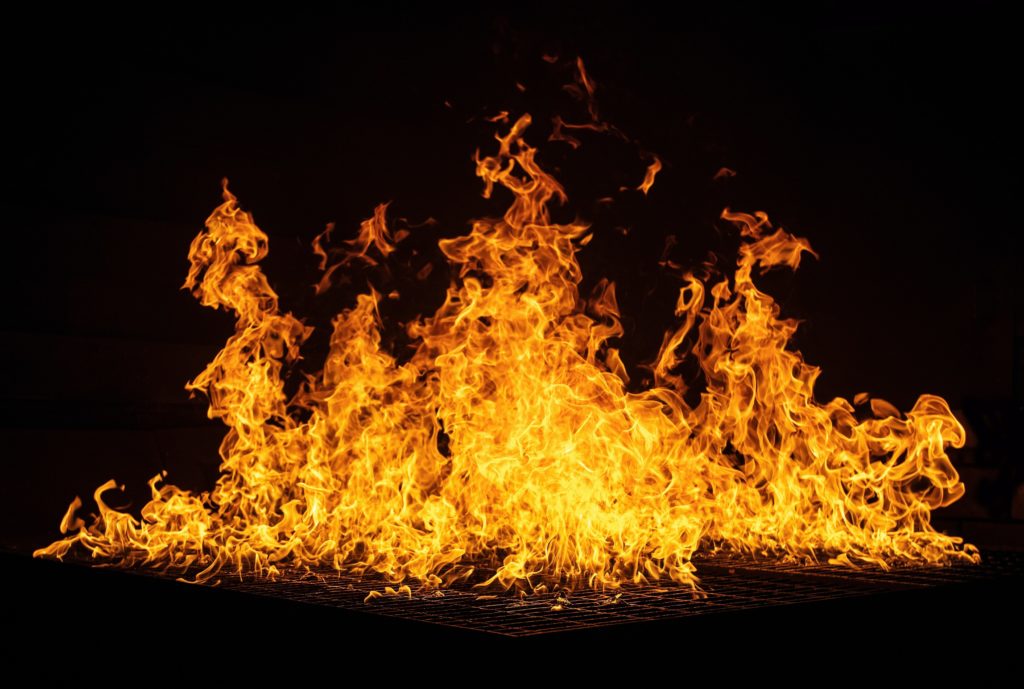Keep your server room safe with the right type of fire suppression methods. Your company’s servers are one of the most important parts of your IT infrastructure. A server hosts and protects data within a network. Servers are expensive pieces of equipment. If they face damage, your company may lose a lot of data. Many businesses may have a server room, an air-conditioned area designed to protect it/them. It maintains a cool temperature and keeps it secure from outside interference. One thing that server rooms may lack, however, is fire suppression and protection from other natural disasters. This type of protection is especially critical for your server room. Let’s look at why having the right type of fire suppression equipment is essential for your server room.
What does a server do?
We’ll first take a look at what servers do. IT officials, including us at Computero, recommend that all businesses have some sort of server – but why? What is the purpose of having a server for small and medium sized companies? The term “server” refers to the hardware and software that allow a network to run more efficiently. A server is essentially the heart of your digital network. It gives the necessary data and information to all of the devices that the system hosts. With the high-powered processing systems, storage mechanisms, and power supply, a server is equipped to control an entire network. To learn more about servers, check out all there is to know about small business servers.
Servers hold and manage a lot of company information, which is why having a reliable server backup software is so critical. If something happens to a server, it would be detrimental to the business. They have, “redundant array of independent disk” – or RAID – which is a way of storing data onto different disks or hard drives. If one drive fails, there will be a backup disk that will take over. This way, you don’t lose data. Additionally, a server’s redundant power supply will protect the server in case the power goes out, which will prevent the network from going down. Servers also have a lot of protection in the world of software, with applications like antivirus to prevent any cyberthreats. Since servers are the heart of a network, keeping both the hardware and software safe is essential to best protect your company.
Risks are Inevitable… and Fires do happen
Unfortunately, every company faces risks, whether they be natural disasters, human errors, cyberthreats, or just about anything. A server room faces a lot of risk purely because of the design of the room. With lots of wires and technological equipment, it is extremely important to protect these areas from any sort of risk, whether it be theft, flooding, fire, and more. A wire could short circuit or the room could overheat from poor air conditioning, among other things. Fire is one the worst risks that any business can face, as it can cause irreparable damage to valuable assets. It’s especially risky for server rooms – equipment is not only pricey but it also contains just about all of the data your company needs to function properly.
When it comes to your server room, the above risks can affect the functionality of your entire company. This can lead to downtime: when your server is down, employees won’t be able to access their network as usual. Downtime is an issue for any business, especially for healthcare, for example, where uptime is critical to keep patients safe. Monitoring servers 24/7 is important to foresee any technical issues or cyberthreats, such as ransomware or outside interference. Additionally, as mentioned above, the physical damage of servers can be extremely costly, especially when it comes to high-end servers.
Standard fire suppression tactics may not work
Since servers are such expensive pieces of technology, standard fire suppression tactics are not really feasible. An extinguisher, for example, can easily damage electronics and technological equipment. Sprinklers will surely cause harm to your server room, making these devices unusable. According to Impact Fire, water and foam (found in sprinklers and fire extinguishers) also conduct electricity which is especially harmful in the event of a Class C fire involving computers and electrical equipment. In the event of an emergency, you should not have to completely damage your server room and its equipment to prevent the spread of a fire. It seems like a lose-lose situation – either a fire spreads and damages equipment, or water/foam causes a reaction that is unsafe for your technology.

The solution
Fire suppression is essential for any server room, as well as any area that contains a lot of expensive technological equipment for that matter. Since we cannot use typical fire extinguishers or other tactics, what’s the best way to keep your server room safe?
Clean agent fire suppression systems, such as the FM-200 from FireTrace International, are a great option to protect your server room from fires in a clean, environmentally friendly way. Clean agent fire suppression works differently compared to a standard fire extinguisher or fire blanket, for example. A fire needs what is known as the “fire triangle” to occur, which includes three elements: a fuel source, heat, and oxygen. Fires can be suppressed by blocking one of these elements. A clean agent uses inert gasses and chemical agents to suppress spreading fires by eliminating either oxygen or heat and breaking the fire triangle.
Clean agent fire suppression is a great solution that is noncorrosive and non conductive (so no electrical reactions). As in the name, this tactic is “clean,” leaving no residue as to not harm any equipment, assets, or individuals. Additionally, clean agents are extremely quick, achieving fire extinguishing concentration in 10 seconds or less. They are eco-friendly and comparatively safer for the environment, although some clean agents are safer than others. For example, the FM-200 from FireTrace has a slightly higher GWP (global warming potential) when compared to other clean agent systems.
Inert Gas Fire Suppression
This is a type of clean agent that uses inert gasses to suppress fires. Inert gasses are those that use one or more of these gasses: nitrogen, argon, or helium. Carbon dioxide is also an example of an inert gas. This tactic works by removing oxygen in the fire so that it will no longer sustain the fire, but can still support life. Inert gas fire suppression is great in smaller server rooms or areas where a lot of people are close together, as gasses like nitrogen and carbon dioxide are relatively safe for humans. However, this method requires a larger volume of the agent to suppress fires and thus tends to takes up more space.
Synthetic Gas Fire Suppression
Similar to inert gas suppression, this tactic involves the use of gas to get rid of a fire. The synthetic gas is kept as a liquid until it needs to be deployed. This sort of fire suppression can cover larger areas when compared to the inert gas method.
Overall, having a clean agent fire suppression is a great option to protect your server room. Some benefits include maximized safety, minimal clean-up, no damage to affected areas, less downtime, and quick action. For your server room, this method checks all the boxes to protect your equipment and get things back up and running as quickly as possible. However, some downsides might be the cost and need to replace your fire suppressant or refill storage tanks after use. It’s important to note that, having a fire suppression system is not the end all be all to protect your server room, as anything can happen at anytime.





0 Comments